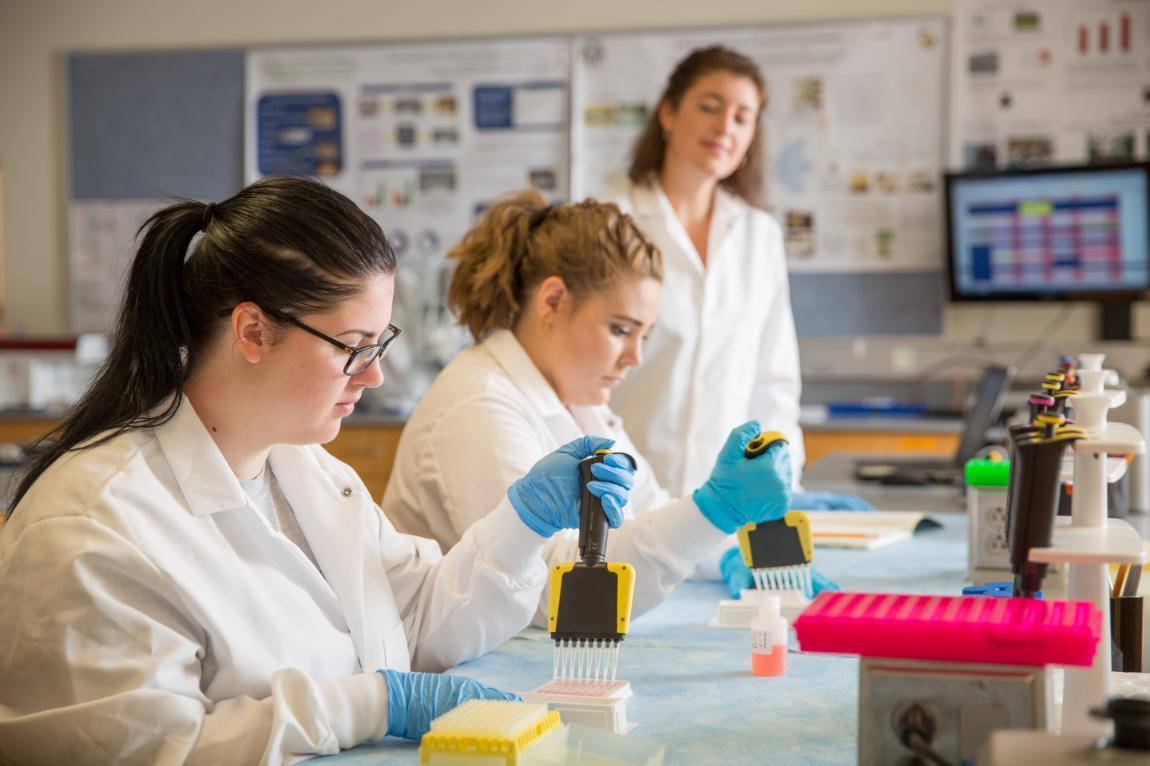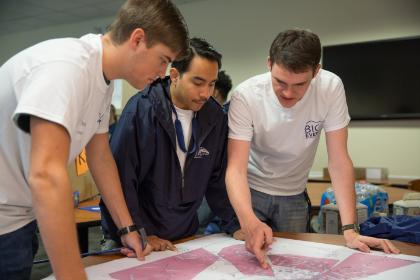Longwood’s Neuroscience Studies program is one of a kind in the state of Virginia. Neuroscience is the study of the nervous system, including molecules, nerve cells, networks, brain systems, and behavior.
The Program
Through the Neuroscience Studies minor, you’ll learn about the field of neuroscience, ultimately allowing you to implement your knowledge of the nervous system directly to your specific area of study. Becoming a Neuroscience Studies minor will give you a competitive edge within your future career.
The program provides an intentional focus on the development of interrelationships of neuroscience across the liberal arts and collaborates specifically with biology, chemistry, computer science, speech-language pathology, business, mathematics, medicine and allied disciplines, philosophy, physics, and psychology.
Students from a diverse group of majors, including Biology and Communication Sciences and Disorders (CSDS), work one on one with professors from a multitude of backgrounds and various fields of study within the sciences. Hands-on training and small class sizes provide variety and knowledge to differentiate skill sets that will be applied in the workplace.
Career Path
Longwood University’s unique Neuroscience Studies minor exists to help students learn foundational neuroscience concepts and apply them to their major fields of interest. Let us know who and what you want to do and be -- we’ll help you discover the best programming to achieve your dreams!
Neuroscience Studies can be applied to careers in:
· Artificial intelligence specialist
· Food scientist
· Forensic science technician
· Genetic counselor
· Laboratory/Medical technician
· Lawyer
· Optometrist
· Pharmaceutical sales
· Physician’s assistant
· Public policy specialist
· Speech-language pathologist
Many of our graduates apply their Neuroscience Studies within their graduate programs, in the pursuit of higher levels of education within their field.





